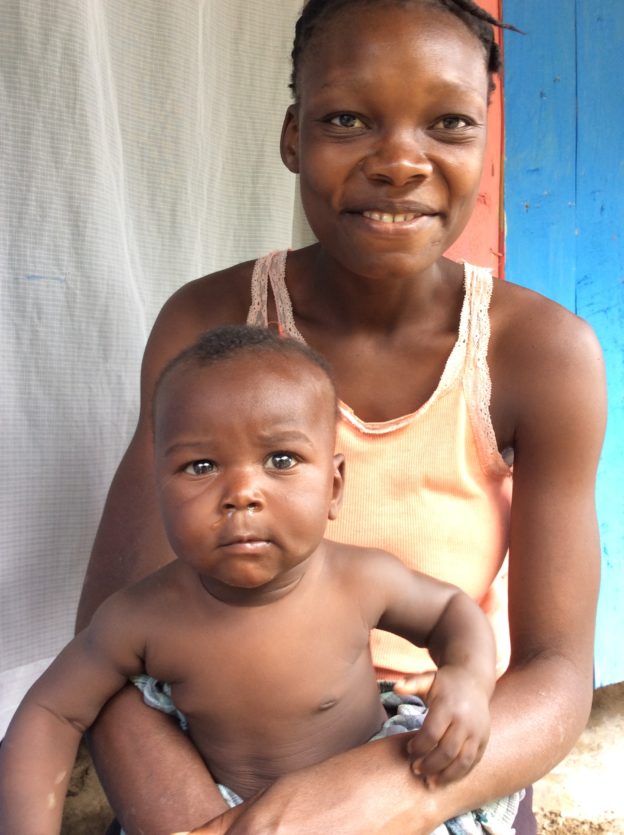“The graduation ceremony went well.” Modeline explains, “I took care of everything they gave me, I kept watch over the livestock, and the ceremony was important because I wanted everyone to see my success.”
Towards the end of the 18 months, Modeline had six goats. But one of the kids died, and she had to sell another goat to pay the last of the money she owed to her savings and loan association.
The association offered her opportunities, but her loan didn’t really pan out. She and her husband borrowed money for him to invest in avocados, but the ones he bought never got to market. It was a total loss. And Modeline doesn’t plan to rejoin the association for a second round. “I don’t really like the people who are involved. We could try to start our own separate association, but they’re the ones who have the equipment to run it with.”
She and her husband will continue to focus on their farming. “Farming is what we believe in, and we’ll keep working at it.”
They are making their lives now as farmers in a way they couldn’t have before Modeline joined the program. Back then, her husband Wisnel lived in the Dominican Republic. She lived with their daughter in her mother’s home, helping out as a babysitter. When Wisnel heard what the program was offering his family, he returned for a visit to do his part. He gave Modeline the help she needed to build their new house, and he began taking care of their animals.
But the critical change in their lives came when Modeline’s stepfather intervened. The older man got involved in the same avocado investment that Wisnel made, and though neither man succeeded, he liked Wisnel’s willingness to work. So, he spoke to Wisnel’s mother. She had land that was going unfarmed because she couldn’t farm it herself. She had neither the physical strength nor the resources. The stepfather convinced her to turn the land over to Wisnel, and he went to work on it right away.
With livestock to develop and land to farm, Wisnel and Modeline decided there was no longer any reason for him to return to the Dominican Republic. Modeline says that he might still go work there occasionally for shorts periods if there’s no work to be done on their land. Quick windfalls will always help. But the two now live together fulltime, and Modeline could not be happier about it.
The family still struggles. There isn’t much to eat these days. It has been some time since their last harvest. Modeline can make one good meal a day out of the products of their plantain patch, but with very limited cash, she can’t always make a second meal. And since she does not have a small commerce, regular cash income depends on Wisnel’s occasional ability to work for a day in someone else’s fields. He has to be careful, though. He needs to make sure he has plenty of time to work his own land because good harvests are what they need to continue to transform their lives.
Modeline is already thinking of school in the fall for their first child. “I didn’t send her this year because the path down to the school in Mawotyè is too hard for a little girl like her. I couldn’t carry her down every day because I was pregnant. But that’s what I’ll do next year.” Modeline herself never went to school, but she’s determined that her children’s lives will be better than hers has been.
